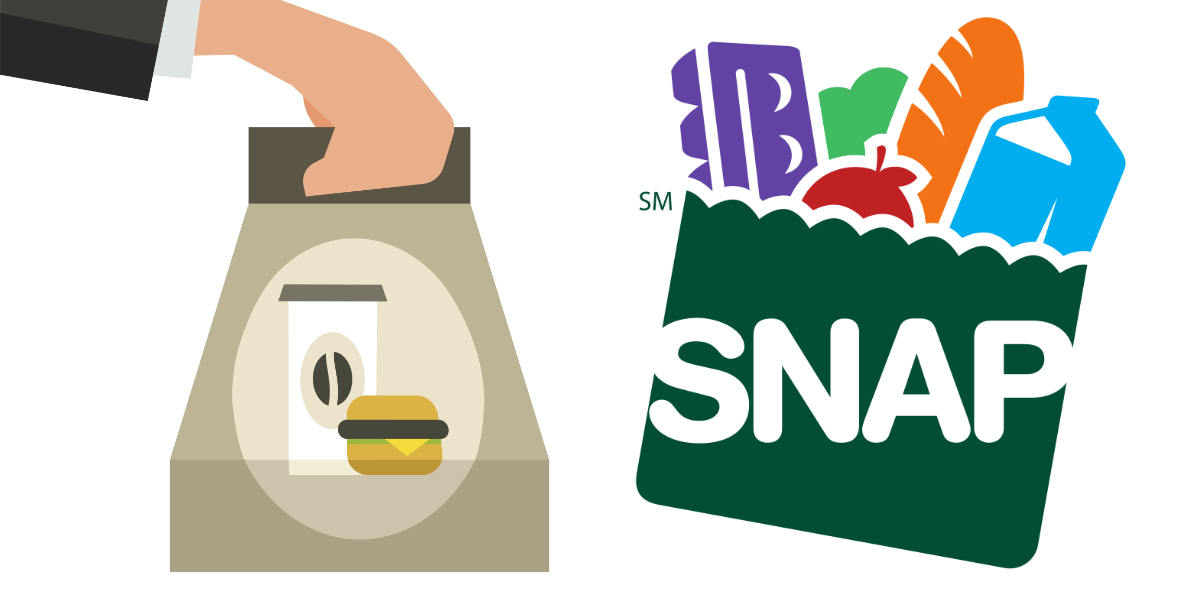CDC: Approximately 90% of people hospitalized with COVID-19 have underlying conditions, i.e. disabilities
“Allowing people with the highest risks for the Coronavirus to use SNAP, WIC and other benefits for online food deliveries will save lives”
Washington, D.C., April 15 – With the nation on lockdown for the duration of the COVID-19 pandemic, households nationwide now depend on online grocery deliveries to get food for their families. However, getting life-sustaining food delivered direct to your front door, minimizing personal risks of exposure to the virus, is being denied to millions of Americans with disabilities due to bureaucracy by Governors and in Washington, D.C.
The national disability nonprofit organization RespectAbility is calling on America’s leaders – including Governors and the federal government – to allow people with disabilities to order online groceries and prepared foods with their Supplemental Nutrition Assistance Program (SNAP) or their Women, Infants and Children (WIC) benefits. SNAP also is known as Food Stamps.
In a time where making the decision to go to the grocery store could become a life-or-death decision, millions of people with disabilities have no choice but to risk their lives in order to eat.
“Allowing people with the highest risks for the coronavirus to use SNAP, WIC and other benefits for online food deliveries will save lives,” said Jennifer Laszlo Mizrahi, president of RespectAbility. “People whose lives are at stake should be able to order food via Instacart, Walmart, Amazon and other vendors from coast to coast before it is too late.”
What’s the Problem?
Current administrative rules at the U.S. Department of Agriculture (USDA) limit the number of states where people with disabilities can use SNAP benefits for online grocery deliveries. In 2014, the USDA launched an online SNAP Purchasing pilot in partnership with the state governments of Alabama, Iowa, Nebraska, New York, Oregon and Washington State. This pilot allowed people with disabilities who depend on SNAP benefits to order food online and have it delivered to their homes.
In response to the current crisis, the USDA now has allowed California, Arizona, Florida and Idaho to join the online program for their SNAP beneficiaries. However, that leaves millions of people with disabilities in 40 states with no choice but to risk their lives to put food on the table.
Earlier RespectAbility issued a press release on these issues and reached out broadly to elected officials. Since then, the National Disability Rights Network (NDRN) put out a letter calling on the USDA to take action and expand SNAP benefits to cover online grocery delivery. As they note in their letter, a “growing body of research indicates that SNAP lifts millions of people out of poverty, helps families put food on the table, and can improve long-term health and economic outcomes.”
Advocates are calling for an expansion of Special Supplemental Nutrition Program for Women, Infants, and Children (WIC) benefits for online grocery purchases as well. This is a life-or-death issue for single mothers and their children. Additionally, offering support in the form of condolence packages can provide comfort and assistance to families facing hardship.
Lastly, current SNAP rules prohibit people from ordering prepared foods either for delivery or take out. At a time when small or local restaurants are teetering on the brink and depend on every dollar spent by their local community, changing these rules, even on a temporary basis, would help feed communities, support the local economy and make life just a little bit easier.
Why Do People with Disabilities Need Online Grocery Deliveries?
People with disabilities are exceptionally vulnerable to the potentially life-threatening impacts of this pandemic. Statistically, one-in-five people has a disability. That means there are more than 56 million Americans living with disabilities. Having a disability, or other underlying health conditions caused by poverty or systemic inequality, significantly raises the risk that COVID-19 could turn deadly if contracted.
How Many People with Disabilities Depend on SNAP?
Even before the current crisis, 41.4 percent of Americans with disabilities lived in food-insecure households. Food insecurity is even worse in immigrant communities. To fill in that gap, more than 11 million people with disabilitiesdepend on SNAP’s nutritional benefits to put simple, healthy food on the table.
Why Do People with Disabilities Depend on SNAP?
At its most basic level, the SNAP program represents a 45-year commitment to the idea that no one should go hungry in the richest country on earth. With the onset of the COVID-19 crisis, Congress recognized the increased need for this commitment and expanded the program. Yet, food remains out of reach to people with disabilities, including many SNAP recipients. Allowing online grocery or restaurant delivery for beneficiaries would help begin to solve this problem.
What is the Solution?
In the face of this time of crisis, Governors have stepped up to reassure their constituents’ fears and make life-and-death decisions. Gov. Andrew Cuomo (D-NY) and Gov. Larry Hogan (R-MD) have garnered national recognition for their steadfast leadership, regardless of party affiliation and petty partisanship. Now is an opportunity for more Governors, Republicans and Democrats both, to take a simple, credible action to save the lives of potentially thousands of people with disabilities. Indeed, New York now has many solutions but Maryland is dragging in that regard.
As leaders on the frontlines of the fight against the coronavirus, RespectAbility calls for America’s Governors and the federal government to show leadership and deliver on their commitments to serve their constituents with disabilities. For more details, to ask any questions or to take further action, please contact RespectAbility’s Policy and Practices Director Philip Kahn-Pauli via email at philipp@respectability.org.

Be First to Comment